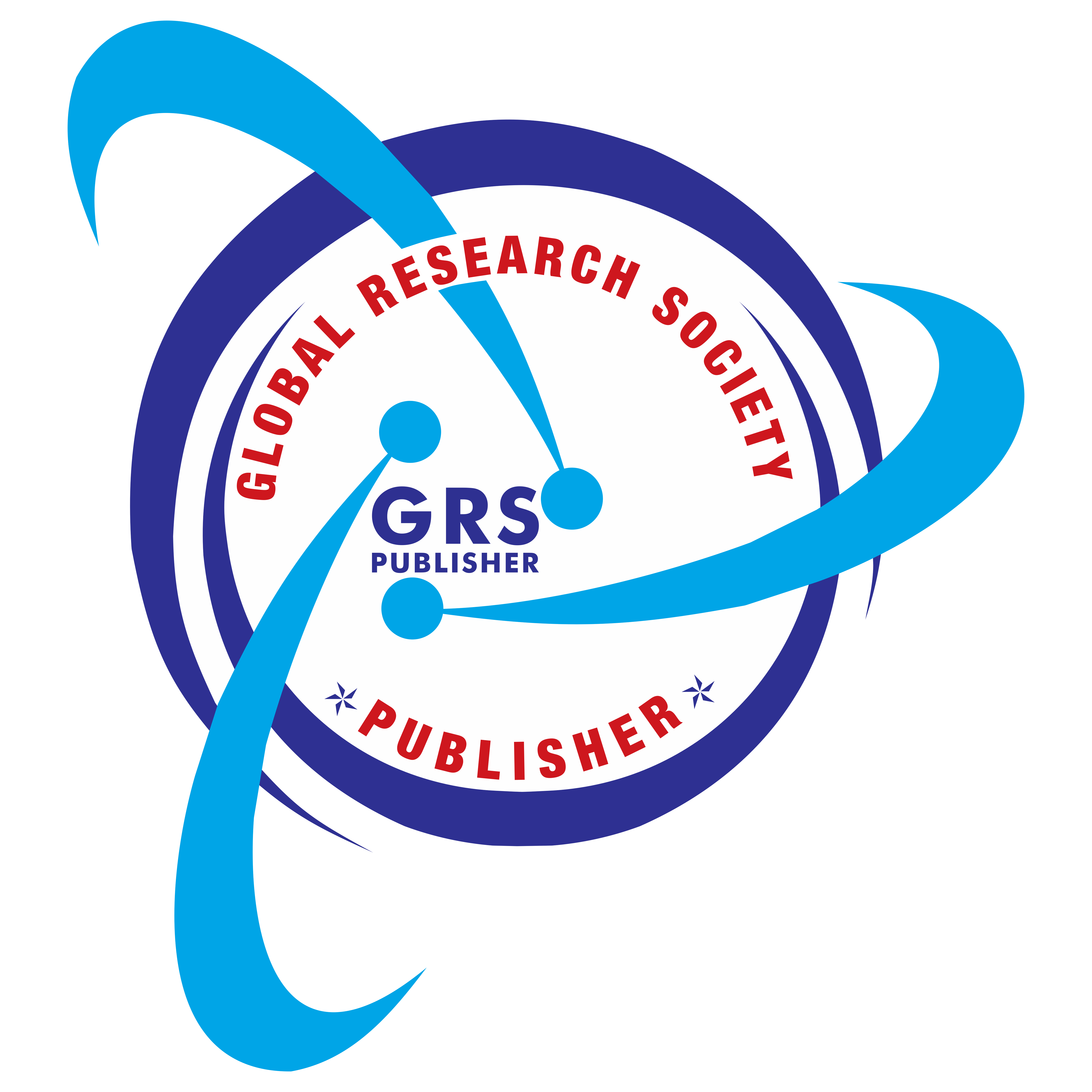GRS Journal of Arts and Educational Sciences
All Issues
Mahfuj Sarder*, Mohammad Naeem...
Department of Anthropology, Faculty of Social Science, Jatiya Kabi Kazi Nazrul Islam University, Bangladesh.
1-9
![]() https://doi.org/10.5281/zenodo.16810083
https://doi.org/10.5281/zenodo.16810083
Dr. Mehmet Uçkaç, PhD*
International Science and Technology University.
10-16
![]() https://doi.org/10.5281/zenodo.16875335
https://doi.org/10.5281/zenodo.16875335
Dr. Mehmet Uçkaç, PhD*
International Science and Technology University
17-22
![]() https://doi.org/10.5281/zenodo.16875351
https://doi.org/10.5281/zenodo.16875351
Dr. Mehmet Uçkaç, PhD*
International Science and Technology University
23-29
![]() https://doi.org/10.5281/zenodo.16875363
https://doi.org/10.5281/zenodo.16875363
Dr. Mehmet Uçkaç, PhD, Prof. D...
International Science and Technology University
30-33
![]() https://doi.org/10.5281/zenodo.16875403
https://doi.org/10.5281/zenodo.16875403
Prof, Dr. Mohammad Ekram YAWAR...
Dean of the Faculty of Law, International Science and Technology University, Warsaw, Poland
34-43
![]() https://doi.org/10.5281/zenodo.16875961
https://doi.org/10.5281/zenodo.16875961
Prof, Dr. Mohammad Ekram YAWAR...
Dean of the Faculty of Law, International Science and Technology University, Warsaw, Poland
44-52
![]() https://doi.org/10.5281/zenodo.16885973
https://doi.org/10.5281/zenodo.16885973
Prof, Dr. Mohammad Ekram YAWAR...
Dean of the Faculty of Law, International Science and Technology University, Warsaw, Poland
53-60
![]() https://doi.org/10.5281/zenodo.16885993
https://doi.org/10.5281/zenodo.16885993
Prof, Dr. Mohammad Ekram YAWAR...
Dean of the Faculty of Law, International Science and Technology University, Warsaw, Poland
61-68
![]() https://doi.org/10.5281/zenodo.16886009
https://doi.org/10.5281/zenodo.16886009
Prof, Dr. Mohammad Ekram YAWAR...
Dean of the Faculty of Law, International Science and Technology University, Warsaw, Poland
69-74
![]() https://doi.org/10.5281/zenodo.16886018
https://doi.org/10.5281/zenodo.16886018
Prof, Dr. Mohammad Ekram YAWAR...
Dean of the Faculty of Law, International Science and Technology University, Warsaw, Poland
75-79
![]() https://doi.org/10.5281/zenodo.16886030
https://doi.org/10.5281/zenodo.16886030
